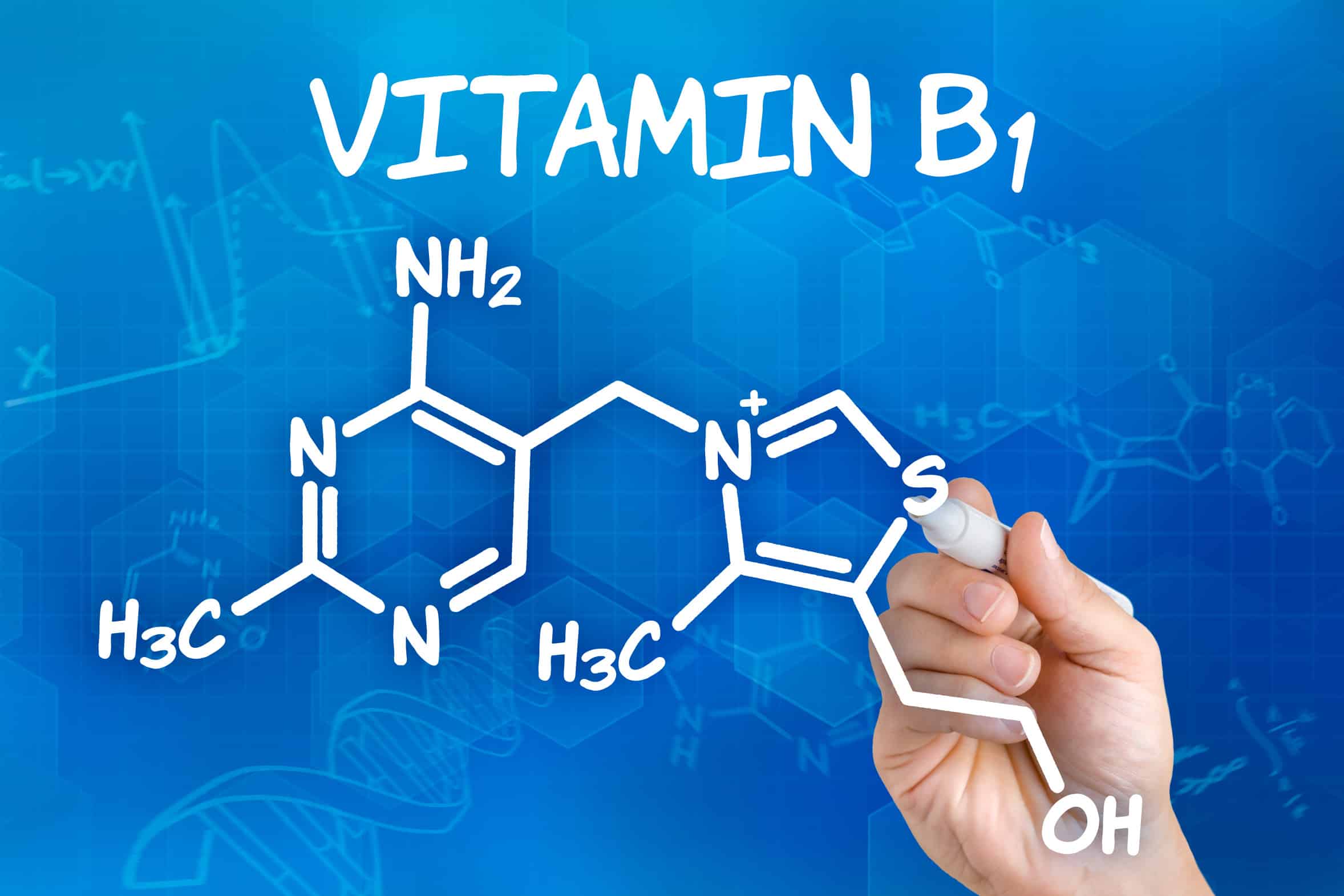Thiamine

Vitamin B1, also called aneurine and thiamine, is a water-soluble vitamin that is very important especially for the human nervous system. It is mainly found in wheat germ, sunflower seeds, sesame seeds, baker’s yeast, peas, beans, pork, oatmeal, and poultry. The daily requirement for adults is about 1.0 to 1.3 milligrams per day; pregnant and breastfeeding women usually need a little more. Research in connection with thiamine can look back on a long history. As early as 1897, Christiaan Eijkman, Nobel Prize winner for medicine/physiology, demonstrated vitamin B1 deficiency effects caused by feeding polished rice. At that time, however, the vitamin itself was still largely unexplored. A little later, in 1910, Umetaro Suzuki finally discovered vitamin B1 (aneurine or thiamine), and again two years later Casimir Funk was able to isolate it for the first time.
Thiamine is also important in cosmetics
In cosmetics, thiamine is often used as a salt (hydrochloride) to treat blemished skin. The corresponding preparations then usually contain combinations with other B vitamins. Basically, thiamine is used for the following areas of application:
– anti-itching
– treatment of inflammatory processes
– hair treatments
– Improvement of skin moisture
– cell regeneration and epithelialisation after skin lesions
Vitamin B1 deficiency symptoms
Unfortunately, our body cannot store this vitamin over a longer period of time. It is very sensitive to heat, oxygen, and UV radiation, so the amount in food can vary greatly depending on how it is stored and prepared. Important: The absorption of thiamine can be impaired by consuming large amounts of coffee, black tea, or even raw fish. An overdose of thiamine is hardly possible through food intake. Those who take very high doses of food supplements with thiamine over a longer period of time must expect sweating, headaches, itching or skin changes. A deficiency, on the other hand, is much more serious. If the body is not supplied with enough thiamine, there is a risk of memory disorders, fatigue, a decline in physical and mental abilities as well as tingling or numbness in the hands and feet. People suffering from chronic diseases such as Crohn’s disease and coeliac disease are particularly often affected by a deficiency.
Fact Sheet Vitamin B1:
Alternative names: Thiamine, aneurine, thiamine chloride, antineuritic vitamin, antiberiberifactor.
CAS number: 59-43-8
67-03-8 (hydrochloride)
Nature: It is a colourless powder with a faint but characteristic odour.
Solubility: very soluble in water
Physiological functions: Coenzyme in dehydrating decarboxylation reactions, carbohydrate metabolism.
Molecular formulae: C12H17ClN4OS (chloride),
C12H18Cl2N4OS (hydrochloride)
Conclusion: Thiamine has many positive properties
Thiamine is essential for the functions of our nervous system. Simply put, it gets energy from food, strengthens hair and nails, builds new cells and improves muscle performance. A deficiency can have drastic consequences for health and should therefore be avoided at all costs. This is especially true for people who are regularly exposed to heavy physical work, but in principle an adequate supply is of great importance for every individual. Side effects or disadvantages are not to be expected when used responsibly.
We are happy to work with this raw material containing vitamin B1:
| Tradename | INCI | Supplier | Remarks |
|---|---|---|---|
| Poly Red Hyalu-Cage System | Aqua, Sodium Hyaluronate Crosspolymer, Rhodopseudomonas Lysate, Pentylene Glycol, Thiamine HCL, Pyridoxine HCL | Rahn AG | |
| Natori Vita Complex HD (C) | Biotin, Panthenol, Thiamine HCl, Cyanocobalamin, Riboflavin, Pyridoxine, Folic Acid, Menadione, Bioflavonoids, Ascorbic Acid, Tocopheryl Acetate, Glutathione, 1,2-Hexanediol, Aqua | Ecoori |
For further information, product or concept ideas, please feel free to contact us.
Literature:
Vitamins; Hans K. Biesalski, Jürgen Schrezenmeir, Peter Weber, Hubert E. Weiß, Thieme-Verlag